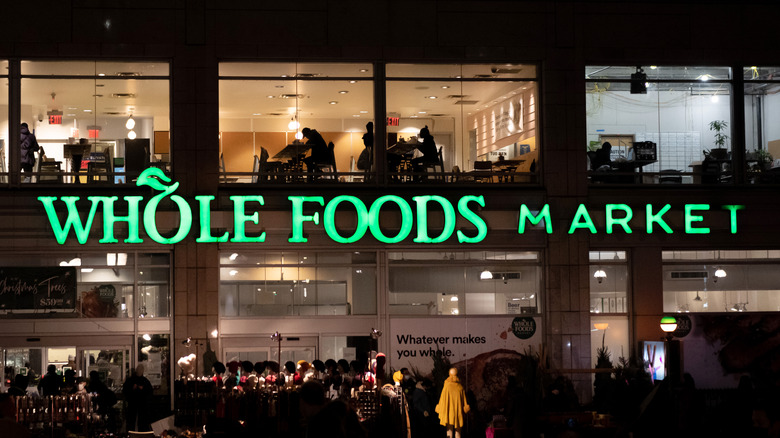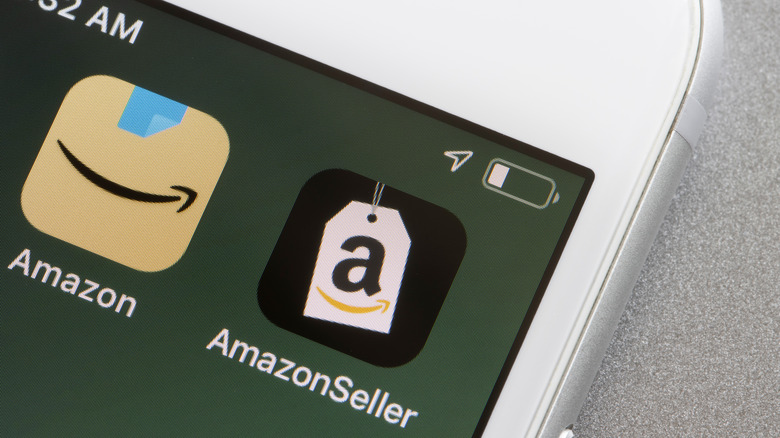Whole Foods Employees Confirm What We Suspected All Along About Amazon
Amazon has affected the food industry in a big way since the tech mogul bought Whole Foods in 2017 (via Business Insider). Although the brand is a multibillion-dollar success, Amazon has come under intense scrutiny for how it measures worker productivity. In fact, The New York Times investigated how especially during the pandemic, Amazon founder Jeff Bezos sought ways to get products to customers' hands in ways that were faster but often at the cost of workers. Bezos, reported the outlet, "pioneered new ways of mass-managing people through technology relying on a maze of systems that minimized human contact."
The Times explained that one of the biggest issues with a mass-computerized system is that low productivity can unfairly place blame on warehouse workers. Now, what does all of this mean for Whole Foods? Whole Foods employees recently confirmed that Amazon does indeed keep a tally on worker productivity similar to the one used in its warehouses, as Business Insider reports. Whole Foods workers claim that the company tracks the number of units "shoppers" or employees "pick per hour, how quickly they respond to requests, and how many items in an order are out of stock," potentially linking order success to factors out of an employee's control. Business Insider spoke with both Whole Foods and Amazon employees, under the condition of anonymity.
Whole Foods employees feel dehumanized by Amazon
This productivity tracking system has the tendency to impose unrealistic goals on workers who are constantly monitored by both real people and online observers, per Business Insider. Workers told Insider that this has instilled a "fear of losing their jobs." The purpose of this process is to encourage low delivery costs to keep up with consumer demand. The downside is that the technology has the capacity to make employees feel undervalued and just another number.
Amazon's employee tracking is nothing new, as the company has fired hundreds of employees for failing to reach productivity benchmarks (via The Verge). So, how does this affect loyal Whole Foods customers? Well, extra pressure from the system is placed on employee "shoppers," especially now that Amazon Fresh, Amazon's grocery delivery service that focuses on providing fresh and local food, is having trouble meeting its fiscal goals, per Business Insider. This could mean a lack of employees to fulfill orders or the inability to keep up with them.
Mass system tracking may not only apply to employees, but to consumers also. The most relatable instance is when apps use your profile information or online shopping history for targeted ads. Wired explains that the ultimate goal of this data collection is "to help sell you more things." Shocker. Recently, other big grocery chains have been coming out ahead of Whole Foods, so only time will tell if the constant monitoring — to the detriment of their employees — is worth it.

